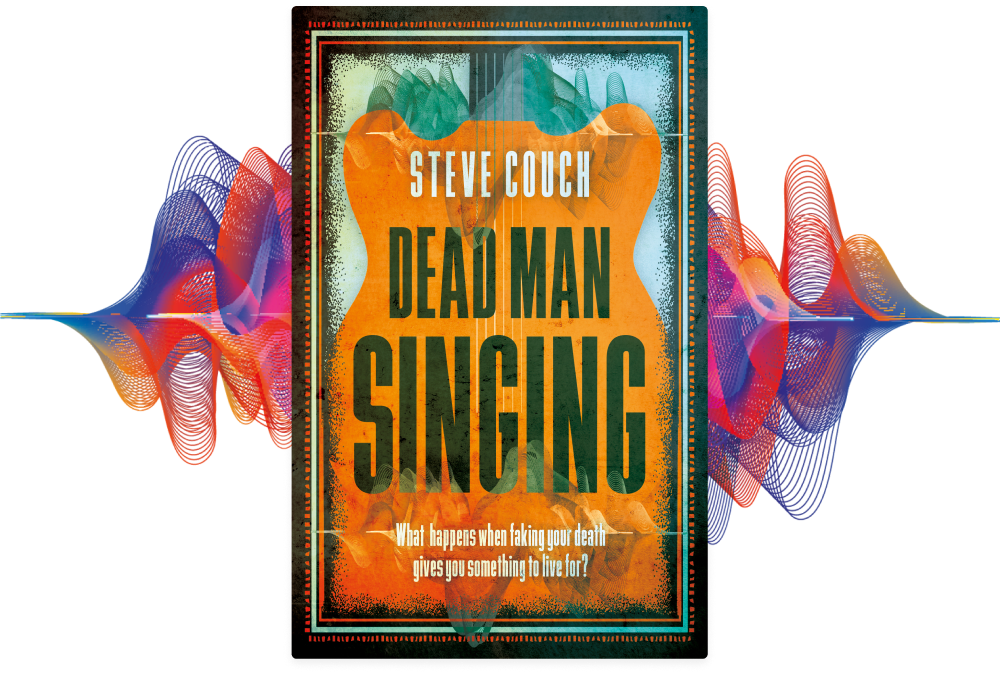
Hidden Gems #12: White City: A Novel
99 days ago
Pete Townshend is an important part of Dave’s musical makeup in Dead Man Singing. As I’ve said before, the Who were part of the musical triangulation that helped me to define his sound, and Dave would have found much to admire in both his guitar playing and songwriting. One Townshend song, The Real Me from the Who’s Quadrophenia album, provides the title for part four of my book, and there are three Who albums plus two of Townshend’s solo works that make Dave’s in-case-of-fake-death 100 album first aid kit.
White City: a Novel (1985) is one of the albums he takes with him, probably less well known than Empty Glass (1980), but something I thought Dave would have listened to while pondering how to take his own sound forward in a changing rock soundscape. Opening track Give Blood starts with a slow brooding heartbeat of a rhythm, and a menacing increase of tension before a reverberating guitar leads a driving, pulsating track that drips with urgency. Despite coming only three years after his previous album, All The Best Cowboys Have Chinese Eyes (1982), this feels like a deliberate attempt to move into new musical territory, and none of the tracks blend easily into one another, with Give Blood’s nu-rock followed by the relaxed, happy pop of Brilliant Blues and the tour-de-force Face the Face. The latter is another slow build, with a steady rhythm, metronome sound effects, a driving drumbeat and vocals sounding at times like they’re delivered through a megaphone. And that’s just the first two minutes; from there it keeps building and producing more musical surprises, including a horn section and an instrumental duel between guitar and horns that holds attention and moves feet in equal measure.
Crashing By Design feels like an attempt to cover similar musical territory to Let My Love Open the Door from earlier in his solo career, while White City Fighting – co-written with Pink Floyd’s Dave Gilmour, and featuring the latter on guitar – is one of the few songs on the album that could have held its own as a Who track (that’s a comment on feel, not a slight on the quality of the other tracks). At one point, in the prolonged instrumental prelude to I Am Secure, Townshend even manages to sound like Big Country (possibly because that band’s rhythm section, Tony Butler and Mark Brzezicki, provide bass and drums respectively).
It's an album that lacks a defining musical identity, but which somehow holds together as a unified whole, with the final track Come to Mama carrying echoes and reprises of the opening section of Give Blood. Townshend has revealed that the ‘a novel’ part of the title is half of a joke – ‘Well, I thought if I could get away with Rock Opera…’ and half a nod to the fact that the music accompanies a story he had written about conflict, racial tension and youthful hopes and dreams in 1960s West London.
Despite being a household name, I think Townshend remains one of the most underrated figures of the early classic rock era. He’s a much better guitarist than he’s given credit for, an early pioneer of the use of feedback in live performance, and a brilliant songwriter even by the standards of an era of brilliant songwriters. David Hepworth describes Townshend’s Baba O’Riley from the album Who’s Next (1971) as the best recording in the best year in the history of recorded music, and he’s got a case. There aren’t many songwriters who can put a line like that on their CV.
There are no comments yet, be the first to comment...
Your comment will first need to be approved before it is visible.